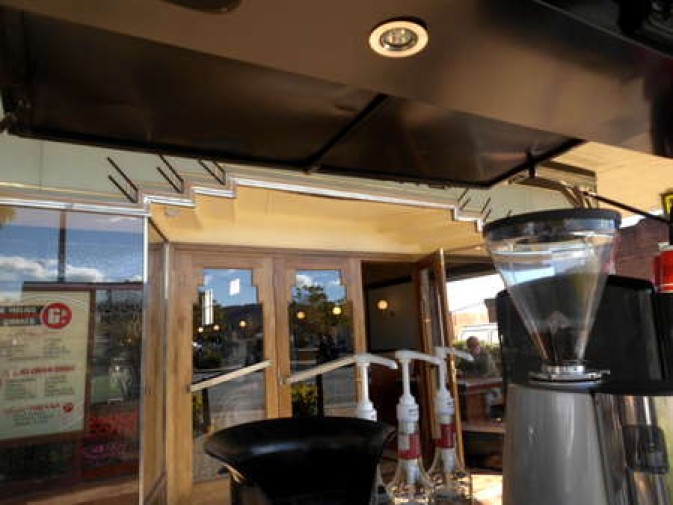A Town Like.....Bingara
Daily Telegraph.
Saturday January 19th, 2013
page 108.
Photograph: The Peters and Co cafe, within the Roxy complex, with portable coffee maker on the pavement.
Over two years in the mid-1930s, a Greek tragedy played out on the main street of rural Bingara, in northern NSW. Three ambitious migrants from a small Greek island spurred a commercial war to the death when they rebuilt their country cafe to incorporate a glamorous art deco cinema.
Born in the 1890s in Mitata, Kythera, in 1919 they followed thousands of countrymen to Australia, then headed inland to find a town in need of a cafe.
Peter Feros, Emanuel Aroney and George Psaltis selected Bingara, trading as Peters and Co when they opened for business in 1920. By 1930 they opened the Golden Belt in nearby Barraba, and announced the "dawn of a new era in Bingara's entertainment history".
They planned a modern cafe seating 140 patrons, two shops, a guesthouse and the most modern theatre outside Sydney.
Then home to about 1500 people, Bingara was settled in the 1830s when William, Matthew and Thomas Hall took up 16,000ha on the Gwydir River.
The Halls named their run Bingera, an Aboriginal name for a shallow crossing. Gold was found in 1852, followed in the1880s by copper and diamonds.
Bingara Moving Pictures opened in an iron theatre in 1912. In 1931 Gallipoli veteran Victor Peacocke opened a silent picture show in the Soldiers Memorial Hall. In 1933, Bingara Moving Pictures closed.
Peters and Co engaged Sydney architect Mark Woodforde to design a theatre with a 30m-long auditorium and soaring 7m ceilings, decorated with ornate stucco plaster. The sloping auditorium seated 280, with 470 seats on a level section near the screen that hid a dance floor.
Peacocke wrote official letters complaining of Greek standover men and rebuilt his venue. His modest Regent Theatre opened in June 1935.
The Roxy opened on March 28, 1936. Three weeks later the Regent cut tickets to one shilling, half price for children.
The Roxy matched the deal, and organised a Movie Ball promoted as the most spectacular dance event in Bingara's history.
But with a superior sound system, by August 1936 the Regent was the only survivor in Bingara's cinema war.
Beset with debts, the Roxy complex closed after five months.
MAREA DONNELLY
